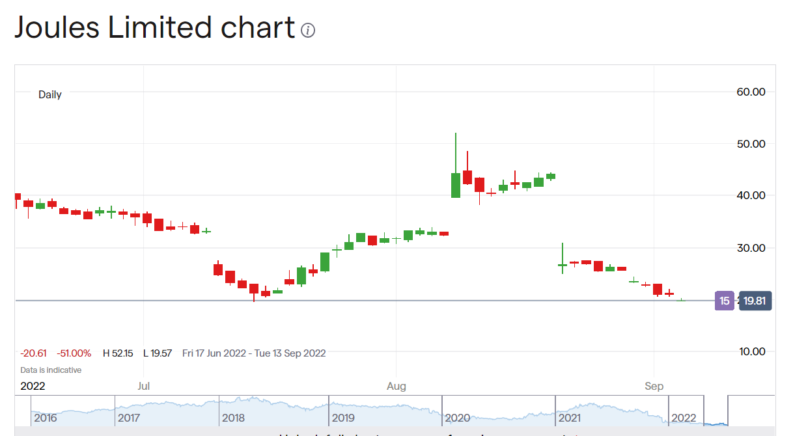Key points:
- The Times reports that Joules Group has had credit insurance withdrawn
- If true this is a distinctly negative sign
- It means greater pressure on working capital – just the thing Joules is short of
Joules Group (LON: JOUL) might have another problem here, it looks like one of the leading credit insurers has pulled cover. At least that's the news from the newspaper over the weekend. It does depend upon the specific capital structure of a retailer – plus how quickly they turn stock over – but such a withdrawal of credit insurance can be the start of a death spiral. For – again dependent – it can mean that a company simply needs ever more working capital to be able to stay in business. Which, when the worries are over credit worthiness – the very reason for the pulling of cover – becomes a self-sustaining problem.
As with all reports of anything which are single sourced there's a certain amount of “if” here, if the reporter has grasped the correct end of the stick. But The Times tells us that: “Meanwhile, leading credit insurer Allianz Trade, formerly Euler Hermes, last week pulled cover for suppliers to struggling fashion retailer Joules.” Our point here is not to insist that that's true – but what does it mean if it is?
The answer being nothing good, nothing good at all. Credit insurance covers a supplier in between invoicing and getting paid. So, if the company goes bust then they do still get paid. Not being able to gain such insurance on a buyer is usually an indication that the buyer is not credit worthy – which means that few will want to ship without prepayment. That's the bit that can – can! – make a buyer end up eating itself through the demands of ever more working capital.

Also Read: The Best Clothing Stocks to Buy
The problem here is that Joules is already hurting for working capital. They're talking about their borrowings being up around the £20 million level, their banking facilities give them another £5 million or so of headroom. Which is great. Except what happens if they can't order on credit?
This depends a little on how fast stock turns over. A supermarket will try to sell stock three or four times over before it has to pay for the first deliveries. That means it often works on negative working capital. Because it has collected on three sets of goods before it pays for the first. Which is great – except when people start demanding payment upfront. Suddenly that entire lack of – negative – working capital becomes a killer. Because they've simply not got the capital within the company to be able to pay for stock.
Now, a clothes retailer might have a different capital cycle but the same base problem will occur. If people are demanding payment before shipping then more working capital is required. But if the retailer is already bumping up against bank credit lines then it doesn't have any more.
We've already got that Next buy-in possibly being discussed. But as we've noted, Next and Joules have a problem there, the share price. If, – and do note it's if The Times is right – then if credit insurance has been withdrawn that should be taken as a distinctly negative sign for Joules Group.




